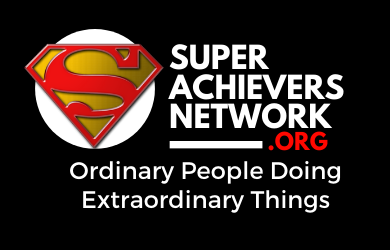Leadership Emergency
In this country, as Baby-boomers are retiring from companies in which they accumulated 30 plus years of knowledge, they are taking all the skills they’ve accumulated right out the door with them.
And unless you are in one of the rare companies that have a strong succession plan in place, organizations are facing a shortage of talent to fill these vacancies.
Sometimes these retirees are hired on a part-time consulting basis, but most of the time companies just simply choose to make due with the people that are left.
Their thinking is that everyone is dispensable. They can just keep hiring until they get the right person to fill our vacancy.
The fact of the matters is that the cost of acquiring new talent is not as easy as it appears.
The time it takes to train, nurture, and groom a successor costs time, which equates to money. Plus, the mistakes made along the way can cause even more setbacks.
This difficulty is not only prevalent with skilled workers, but also in the area of leadership. When good leadership is not perpetuated within an organization, it is a fact that the future of the organization is at stake.
Where is the next generation of leaders?
Why Isn't The Bat-ton Being Passed?
Not all leaders see things this way. These are leaders that are not willing to share their spotlight with anyone.
They enjoy their position of power too much to pass it to anyone. These are the leaders with a negative mentality.
They call themselves leaders, but have no intentions of helping anyone else take their position.
They see helping others develop into leaders is a hinderance to their personal success. They think, if I train my people to be better, they might turn out to be better than them.
These kinds of leader see leadership development as competition instead of cooperation between them and their people. With this concept of leadership, growth in any organization is stagnant.
And if it persists, the organization will eventually die.

Inability To Train Others
Some leaders are just incapable of training their people to be potential leaders. This could be a reflection of their lack of teaching skills. Just because you possess expert skills in one area doesn’t automatically give you the skills to teach what you know to others.
Teaching is a skill within itself. To be an effective teacher, you must learn the skill of teaching. Effective leaders add this skill to their repertoire because they will need it to develop other.
The other reason for an inability to train others exists because the organization itself is not set up to allow time and resources for personal development. Education is not built into the company culture.
How does this happen? Again, it points back to the leadership of the organization. If there is no plan and structure in place to allow for the development of new leaders, it simply won’t happen. At least not to any significant extent.
Whatever the situation, the forward thinking leaders realize that putting these training initiatives into the organization will keep it growing well into the future.
If you are a leader who is lacking in this area, you will do yourself and your organization a favor by getting a systematic leadership succession strategy in plan immediately.
The real leaders are the ones who can and do train and develop others.
Let me quote Peter Drucker as he said,
“No executive has ever suffered because his people were strong and effective.”
Yes, there really is no harm in bringing out the best in your people.
In fact, it is also you who benefits as you get brilliant minds to help you make decisions, organize the team, and develop more leaders.
Therefore, before you really consider yourself an effective leader and a winner, you should be able to impart your wisdom, share your skills and abilities, and mold people to be as effective and successful as you are, if not better.

Bringing Out the Leader-Developer In You
As a leader, you are in the perfect position to set the tone in your organization that everyone else operates.
It is up to you to create a learning environment, nurture your people, and train them with the best knowledge and skills you know.
Do this and before you know it you will create a whole organization of leaders…your future successors!
Remember what John Maxwell said, “There is no success without a successor.”
Help Your People Develop Their Leadership Potential
1. Be a good listener.
Good leaders are good listeners. They do not depend solely on their knowledge, but they give their people chances to express their viewpoints and they listen to them.
Listening to your people not only shows your concern for what they have to say, but also builds their confidence that their contribution to the company counts.
When you listen as they express their ideas and opinions, you actually are giving them a chance to contribute a solution, especially during problem solving and decision-making processes.
Each time you hear their ideas and give them credit, they will feel valued, and they will be encouraged to keep communicating with you.
They will begin to develop greater judgment and understanding on serious matters.
2. Be concerned and show it.
A great leader must be genuinely concerned with the well-being of his team.
This concern shows itself by taking responsibility and defending his team, if things do go wrong, by helping out those in difficulties, and by showing concern for those going the extra mile.
Look out for them, even outside the work. Although you do not have control over their personal lives, you must show concern for them inside and outside of work.
Things happening in their personal lives might not seen important to you, but may be extremely critical to them.
Showing concern shows that you empathize with them.
That may be all that’s required to keep them performing at their best.
3. Learn to motivate
Learn how to motivate people.
This sounds easier than it really is. To be a great motivator, you have to know what really motivates your people.
Which means you have to take the time to really get to know your people well. This takes time.
Explore the different needs that motivate people, and recognize that the same rewards don’t motivate everyone. Your listening skills will reveal what motivates them.
Learning this may take some time, when you get it right, you will really improve your effectiveness as a motivational leader.
As you learn to motive, leaders can now articulate their vision and ideals to others, convincing them of the value of their ideas.
You can inspire people to work towards common goals and to achieve things they never thought they could do.
However, do not confuse motivation with manipulation.
Motivation occurs when you persuade others to take an action in their own best interests, while manipulation is persuading others to take an action that is primarily for your benefit.
Leaders and motivators are winners; manipulators are losers who produce resentment and dispute.
Become a motivator, lead your people, and never manipulate them.

4. Help others succeed.
Leaders empower others and go out of their way to help others achieve their full potential, thereby benefiting the entire organization.
When you help others succeed, you give them the confidence that makes them realize that learning the skills of leadership is within reach.
You become a mentor when you share your knowledge and skills with them.
These individuals that want to develop leadership skills get the most benefit when you actively mentor them.
The mere fact that you see potential in them by mentoring them brings a huge boost to their self confidence.
The effective leader is one who demonstrates his active participation in helping individuals improve into their best selves.
5. Challenge them!
As you set the foundation for support and mentoring, it is now time to challenge your people to raise their performance levels.
Add challenges in their job duties to make work more interesting and meaningful.
These challenges causes them to think differently.
Keep them using their minds by thinking through the challenge and apply different ways to solve it.
Support them will problem solving and show how their efforts contribute to the benefit of the entire organization.
This makes them feel that their work matters.
They need to see that they are an important part of a great team in your organization.
6. Reward good behavior.
Although a certificate, letter, or a thank you may seem small, they can be powerful motivators.
People need to know when they are doing a great job. Not in a general sense, but specifically.
The reward should be specific and prompt. Do not say, “…for doing a good job.”
Cite the specific action that made you believe it was a good job. Then let them know exactly what what is.
The closer to the action that you reward, the more impact.
Make it your mission to vigilantly keep a look out for behaviors that you can reward.
Remember, what gets rewarded, gets repeated.
The Real Leaders Produce Leadership In Others
The ultimate mark of a great leaders is the ability to create leadership in those around them.
Add the skill of developing leadership in others to your list of professional accomplishments.
Developing new leaders will secure the future of your organization.
Put a leadership succession plan in place, and create a leadership learning environment.
Great leaders produce leaders in others.

